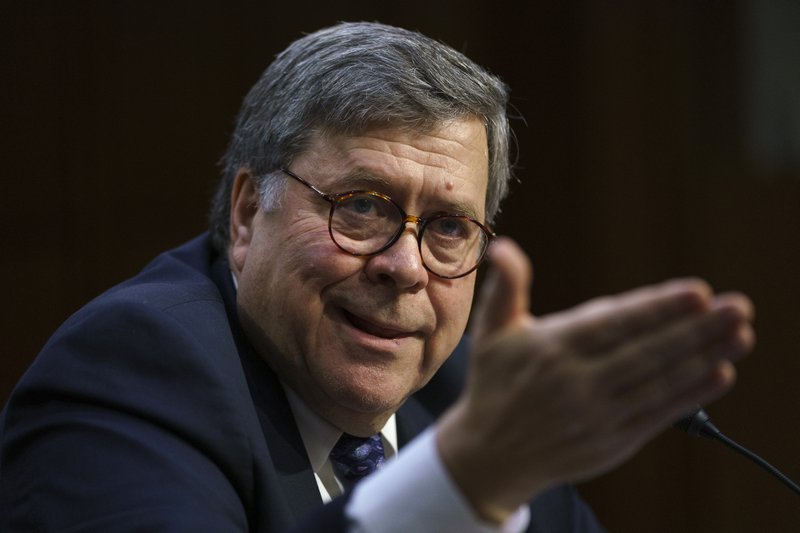
S. Joseph Scott
Special for News Talk Florida
Attorney General William Barr delivered an address on Friday, October 11, 2019 to the Notre Dame School of Law which elicited a hysterical reaction from some in the media. Paul Krugman of the New York Times described it as “a fiery speech,” laced with “the language of witch hunts and pogroms.” A pogrom, by the way, is akin to ethnic cleansing. He went on to describe Barr as “sounding remarkably like America’s most unhinged religious zealots.” The Washington Post’s, Catherine Rampell described his speech as, “a tacit endorsement of theocracy.” And, she concluded, one proper reaction to his words is, “They’re terrifying.” Naturally, I was anxious to read such an electric and alarming oration. After all, it is not every day that one has the opportunity to eavesdrop on an unhinged religious zealot.
Barr didn’t deliver. What is remarkable about his address is just how unremarkable it was. Barr’s topic was religious freedom in the American tradition, its foundations and threats. What he set forth was a bit of historical context for, and what he perceives as contemporary threats to that freedom. Speaking as a committed Roman Catholic to a Catholic audience, he did however do, what in the current cultural milieu is unthinkable, he let his personal faith inform his public philosophy.

FOR MORE INFORMATION CLICK HERE
Barr set forth a generally accepted historical understanding of the moral philosophy of our Founding Fathers. They affirmed a broadly Christian perspective on human nature, the role of government, and the necessity of personal virtue to sustain a republic.
As Barr affirms, the idea of liberty at the founding of our nation was not solely based on the absolute autonomy of individual preference. It was rooted in the Christian idea that human beings were created good, yet fallen. “By and large,” Barr explains, “the Founding generation’s view of human nature was drawn from the Classical Christian tradition.” That tradition asserted the necessity of religion because it “helps promote moral discipline within society. Because man is fallen, we don’t automatically conform ourselves to moral rules even when we know they are good for us.” Given that human beings are not all they were created to be, “These practical Statesmen,” referring again to the Founding Fathers, “understood that individuals, while having the potential for great good, also had the capacity for great evil.” Therefore they concluded, “No society can exist without some means for restraining individual rapacity.”
Thus, liberty is always bounded by a need for restraint, hence the necessity of civil government, with limits. Because, “Men are subject to powerful passions and appetites, and, if unrestrained, are capable of ruthlessly riding roughshod over their neighbors and the community at large,” civil authority is a necessity. “But, if you rely on the coercive power of government to impose restraints,” the Fathers believed, “this will inevitably lead to a government that is too controlling, and you will end up with no liberty, just tyranny.” So, the “great experiment” that is our nation sought individual liberty bounded by limited government, based upon assumptions about human nature that were informed by Christian Scripture. As Barr summarily concludes, “They [the Founding Fathers] would leave ‘the People’ broad liberty, limit the coercive power of the government, and place their trust in self-discipline and virtue of the American people.”

FOR MORE INFORMATION CLICK HERE
Rampell’s charge of theocracy is apparently rooted in Barr’s observation that there must be a transcendent foundation for morality and virtue. Again, explaining the philosophy of the founders, he says, “to control willful human beings, with an infinite capacity to rationalize, those moral values must rest on authority independent of men’s will – they must flow from a transcendent Supreme Being.” Barr then quotes John Adams who explained, “We have no government armed with the power which is capable of contending with human passions unbridled by morality and religion. Our Constitution was made only for a moral and religious people. It is wholly inadequate for the government of any other.” Although the Fathers differed in their religious convictions, there was a shared assumption that morality needed a foundation deeper than mere human opinion, otherwise, tyranny would be the inevitable result. Belief in good and evil is hard wired into human beings, the question is always, who decides what is good/evil, and on what basis?
Barr then goes on to argue that today, with the increasing secularization of our public life, government overreach has been the result, just as the Founding Fathers predicted. The state inevitably seeks to replace the role that religion once played in the public sphere. He inquires, “We are told we are living in a post-Christian era. But what has replaced the Judeo-Christian moral system? What is it that can fill the spiritual void in the hearts of the individual person? And, what is a system of values that can sustain human social life?” His most “fiery” rhetoric is reserved for his answer to these questions as he asserts, “But today – in the face of all the increasing pathologies – instead of addressing the underlying cause, we have the State in the role of Alleviator of Bad Consequences. We call on the State to mitigate the social costs of personal misconduct and irresponsibility. So the reaction to growing illegitimacy is not sexual responsibility, but abortion. The reaction to drug addiction is safe injection sites. The solution to the breakdown of the family is for the State to set itself up as the ersatz husband for single mothers and the ersatz father to their children. The call comes for more and more social programs to deal with the wreckage. While we think we are solving problems, we are underwriting them. We start with an untrammeled freedom and we end up as dependents of a coercive state on whom we depend.” And yes, he lays much of the blame for the social decay of our society at the feet of aggressive secular forces that have been at work to restrain the public influence of religion. This is not an idea unique to William Barr. It is a staple of secularization theory. Secularization is not the eradication of religion, but rather its domestication. Religion is fine for personal peace and private inspiration, but it has no place in the public sphere.
This leads back to the hysteria over Barr’s address. He broke the code. He did exactly what, according to secularism is the cardinal sin, he allowed his private faith to inform his public life. And the reaction to it ironically proves his thesis. You can’t do that. Otherwise, as he predicted, all the force of public media will be employed to “drown out and silence opposing voices, and to attack viciously and hold up to ridicule any dissenters. One of the ironies, as some have observed, is that the secular project has itself become a religion, pursued with religious fervor. It is taking on all the trappings of a religion – including inquisitions and excommunication.”
Barr’s speech and the reaction to it sadly illuminates where we find ourselves today in our public discourse. An unremarkable, generic Christian perspective receives a remarkable even hysterical reaction. It would be far more productive to engage with the ideas that Barr set forth. Challenge his thesis, seek to persuade us with an alternative interpretation of the historical data, rather than simply insulting him with overblown rhetoric.
S. Joseph Scott has a Ph.D. in theology and has served in leadership positions in both higher education and religious institutions. He has published in both academic and popular journals and has a special interest in the intersection of faith and culture.








